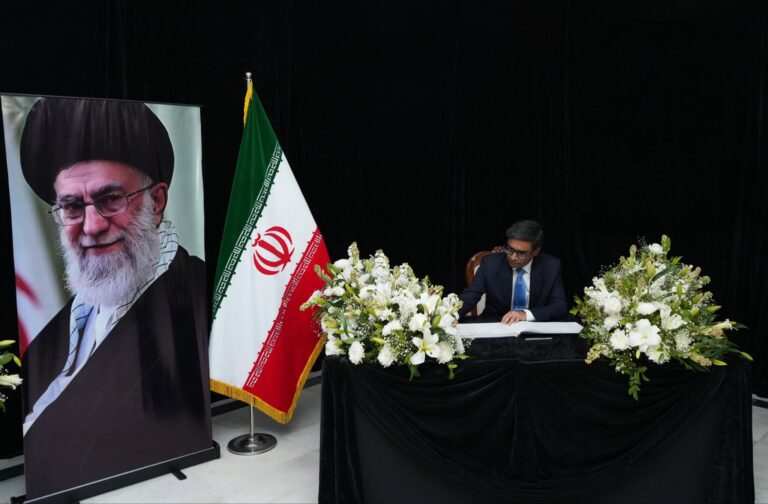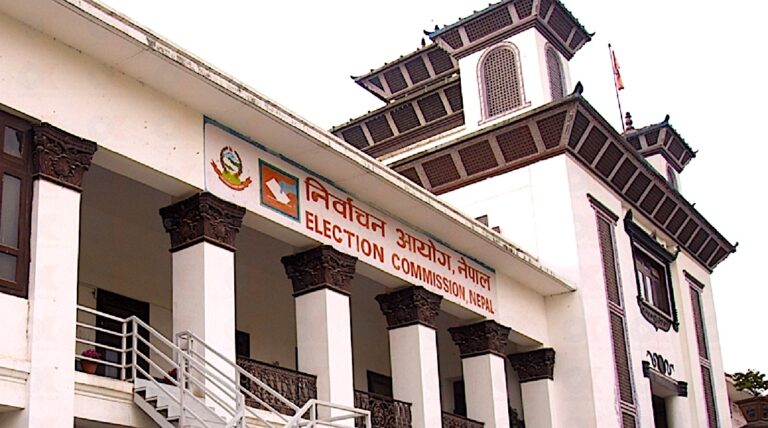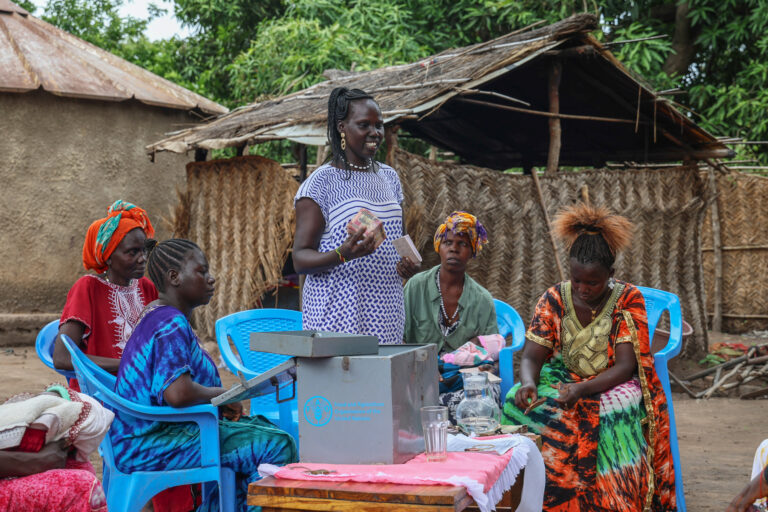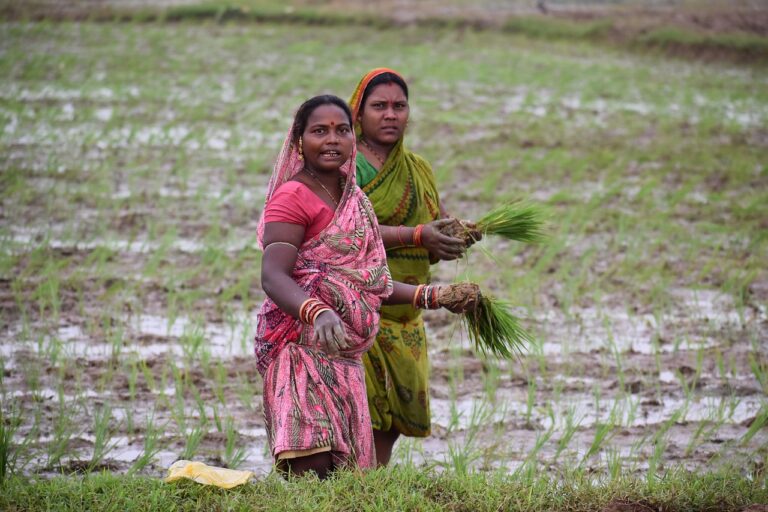
Khan Younis refugee camp, Gaza. Thousands of people are also forced to seek safety and shelter in streets near hospitals, UN offices and public shelters, putting pressure on already overstretched facilities. Out of almost 1.5 million displaced people, nearly 725,000 are in 149 UNRWA facilities, 122,000 are sheltering in hospitals, churches, and other public buildings, and about 131,134 in 94 non-UNRWA schools and remainder in host families. Photo credit: WHO
Amman/Geneva: United Nations agencies claimed that today deaths and injuries in Gaza continued to rise due to intensified hostilities, intense overcrowding and disrupted health, water, and sanitation systems posed an added danger: the rapid spread of infectious diseases. “Some worrying trends are already emerging,” they claimed.
As people face food shortages, malnutrition, and impending colder weather, they will be even more susceptible to contracting diseases, the World Health Organization warned today. “This is especially concerning for the more than 50,000 pregnant women and approximately 337,000 children under the age of five currently in Gaza,” it stated.
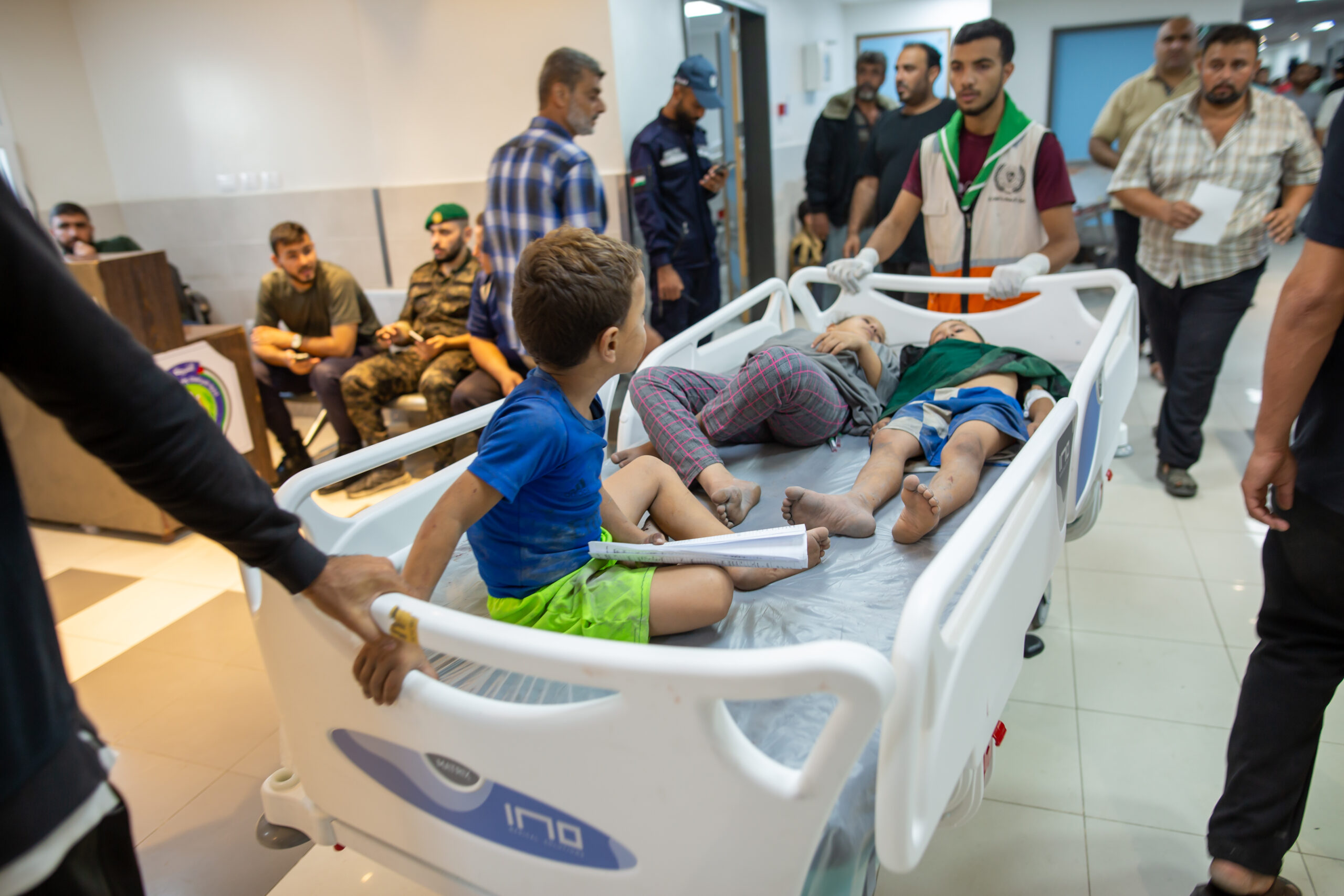
Lack of fuel has led to the shutting down of desalination plants, significantly increasing the risk of bacterial infections like diarrhoea spreading as people consume contaminated water. It has also disrupted all solid waste collection, creating an environment conducive to the rapid and widespread proliferation of insects, and rodents that can carry and transmit diseases.
The situation was particularly concerning for almost 1.5 million displaced people across Gaza, especially those living in severely overcrowded shelters with poor access to hygiene facilities and safe water, increasing the risk of infectious diseases’ transmission.
Since mid-October 2023, over 33,551 cases of diarrhoea have been reported. Over half of these were among children under age five — a significant increase compared to an average of 2000 cases monthly in children under five throughout 2021 and 2022. 8944 cases of scabies and lice, 1005 cases of chickenpox, 12635 cases of skin rash and 54,866 cases of upper respiratory infections had also been reported.
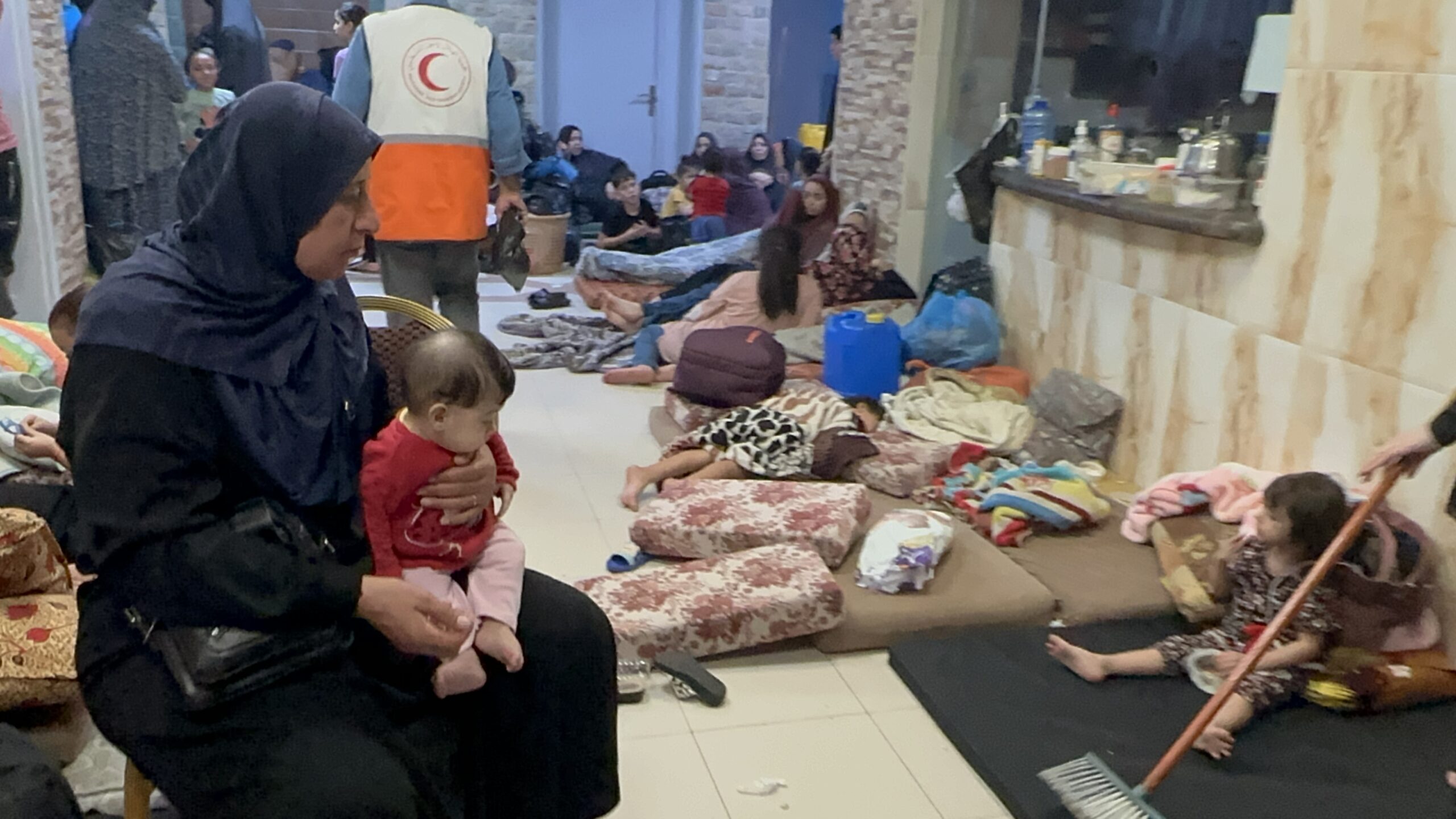
In health facilities, damaged water and sanitation systems, and dwindling cleaning supplies had made it “almost impossible” to maintain basic infection prevention and control measures. These developments substantially increased the risk of infections arising from trauma, surgery, wound care and childbirth. Immunosuppressed individuals, such as patients with cancer, were especially at risk of complicating infections. Insufficient personal protective equipment meant that healthcare workers themselves could acquire and transmit infections while providing care to their patients. The management of medical waste at hospitals has been severely disrupted, further increasing exposure to hazardous materials and infection.
WHO has called for urgent, accelerated access to humanitarian aid – including fuel, water, food, and medical supplies – into and throughout the Gaza Strip. All parties to the conflict must abide by their obligations under international humanitarian law to protect civilians and civilian infrastructure, including health care. WHO calls for the unconditional release of all hostages and a humanitarian ceasefire to prevent further death and suffering.
UNRWA, WHO, and the Palestinian Ministry of Health said they were scaling up a flexible disease surveillance system in many of these shelters and health facilities. However, the current disease trends, they stated, were “very concerning”.
UNRWA stated that it facilitated the delivery of World Health Organization’s much-needed emergency medical supplies and medicines to Al-Shifa hospital in Gaza City, north of the Gaza Strip, yesterday, “despite huge risks to our staff and health partners due to the relentless bombardments in Gaza”.
This was only the second delivery of lifesaving supplies to the hospital since the escalation of hostilities and the total siege of Gaza began. On October 24, 2023, WHO delivered medical supplies to the hospital amid high insecurity.
“While welcome, the quantities we delivered are far from sufficient to respond to the immense needs in the Gaza Strip. The medical conditions at Al-Shifa – the largest hospital in the Gaza Strip and one of the oldest Palestinian health institutions – are disastrous,” UNRWA Commissioner-General Philippe Lazzarini and WHO Director-General Dr Tedros Adhanom Ghebreyesus said in a joint statement.
There were currently almost two patients for every bed available, UNRWA and WHO said. The emergency department and wards were overflowing requiring doctors and medical workers to treat wounded and sick patients in the corridors, on the floor, and outdoors. “The number of wounded increases by the hour while patients are undergoing immense and unnecessary pain as medicines and anaesthetics are running out. In addition, tens of thousands of displaced people have sought shelter in the hospital’s parking lots and yards,” the statement said.
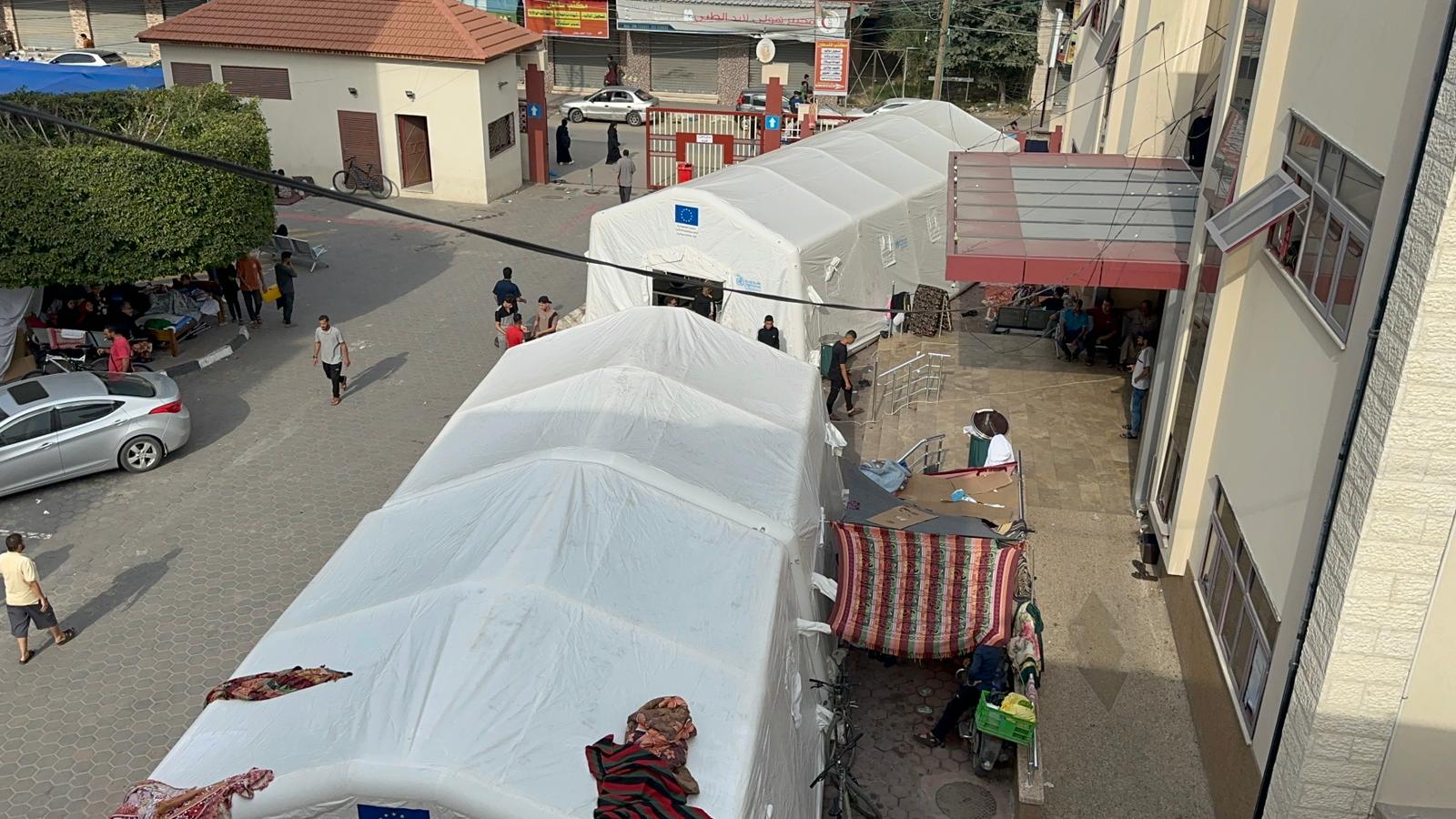
Al-Shifa Hospital has traditionally been the most important health facility in Gaza. Its doctors, nurses and other workers have responded heroically to the current desperate situation. But they need more support. The northern areas of Gaza cannot and should not be isolated nor deprived of the delivery of humanitarian assistance. Patients there cannot be denied the health care to which they are entitled and urgently need. Aid should reach the whole of Gaza.
Medical facilities are running out of supplies and fuel, WHO stated. So far, no fuel has been allowed into the Gaza Strip, including to Al-Shifa Hospital for over one month now.
UNRWA and WHO renewed their urgent call for the delivery of fuel to humanitarian agencies in the Gaza Strip. “Without fuel, hospitals and other essential facilities such as desalination plants and bakeries cannot operate, and more people will most certainly die as a result,” they stated.
“The ability of hospitals and medical facilities to operate is paramount, especially during conflicts. In line with international humanitarian law, we call for the protection of all medical facilities, personnel, patients and the wounded, for the sustained flow of humanitarian supplies and fuel at scale, and for safe and unimpeded access to deliver the supplies to health facilities wherever they are across the Gaza Strip. We also call for the medical evacuation of critically injured and sick patients,” Lazzarini and Dr Ghebreyesus stated.
– global bihari bureau


